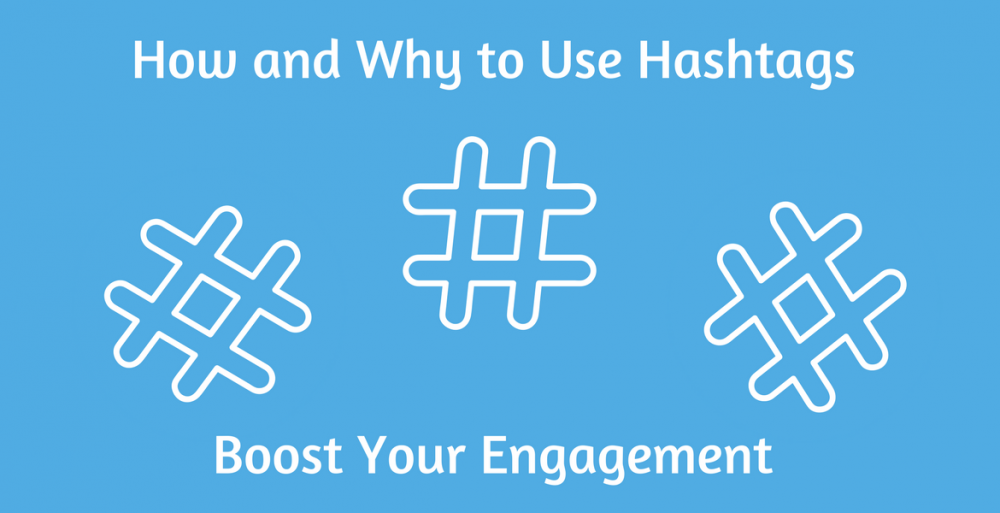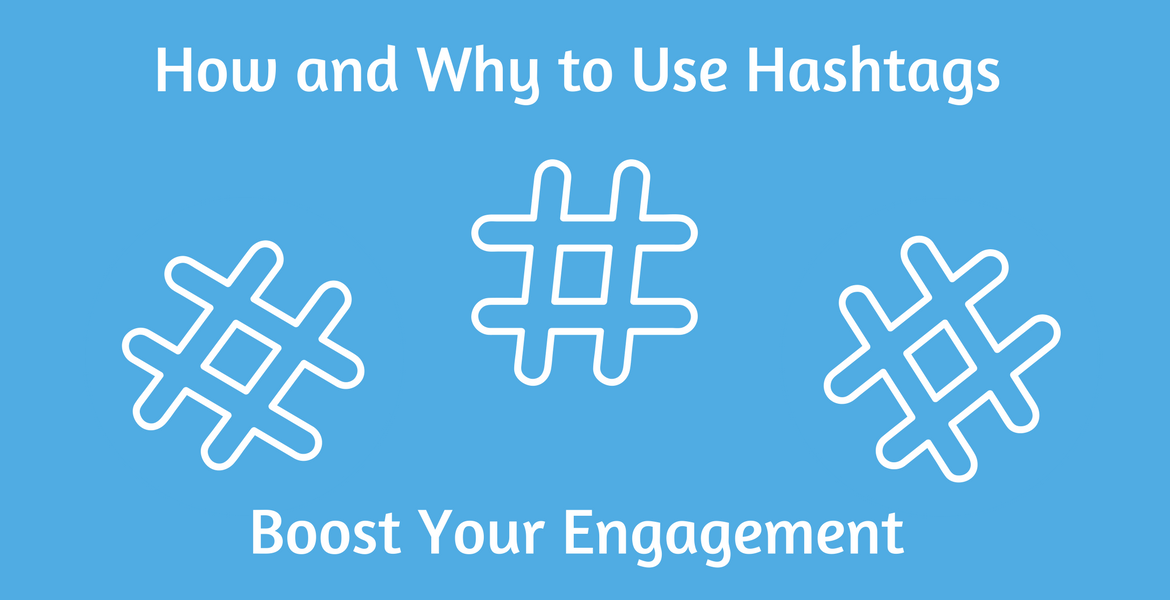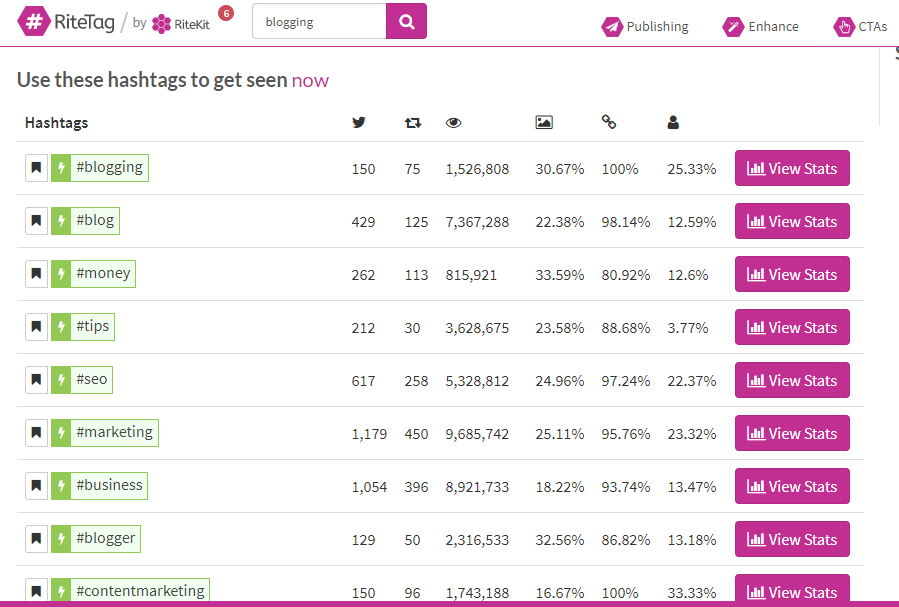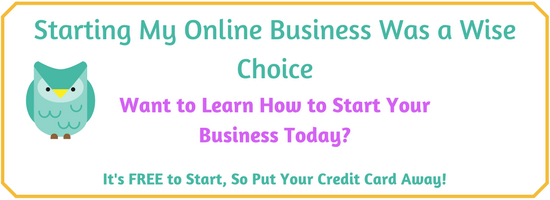Of course, we’re all familiar with hashtags. In 2018, that goes without saying. But do you understand how and why to use hashtags and their powerful #blogging value?
Maybe not!
We can’t escape the hashtag in the online space. The Twitter blue bird flew into the online scene and turned the mundane hash symbol into an Internet sensation. But, I’ve observed some misuses and missed opportunities which have prompted today’s post.
Social media can be an exceptional source of free traffic for website owners and most of us have established social media profiles to promote our sites. Used properly, hashtags can be a powerful (and free) tool to engage your audience. They can help your post standout amongst all the noise created by thousands of new social media posts that are added every minute.
So, I hope you’ll join me as we explore the benefits of employing hashtags along with some of the rules and best practices for proper usage.
Are you ready to dive in?
What is the Definition of a Hashtag?
Yes, we see (and potentially use) them on a regular basis. But, I still find it helpful to start with a shared definition of the term. Wouldn’t you agree? So, I’ll share a basic definition I’ve grown comfortable with along with a link for my readers who enjoy history and all the details.
A hashtag is a string of alphanumeric characters forming a keyword or unspaced keyword phrase that is immediately preceded by a hash character (#).
Isn’t it amazing that something so intrinsic to life today really hasn’t been around all that long?
Social media networks take notice of the hash mark and use it to index your post. Your publication is now easily discoverable by folks who share your passion for the subject matter. Hashtags combine multiple conversations on a topic into a single thread where avid information consumers can feast.
So, let’s say you’re like me and you’re obsessed with blogging and finding the best blogging tools. I can search on #BloggingTools and find a tailored list of posts that are focused on this topic. I love the efficiency of this search technique because I’ve uncovered some fabulously helpful websites and like-minded people to follow using this approach.
The simple hashtag has evolved into the most frequently used means of categorizing content on social media platforms. Its simplicity is brilliant! Twitter introduced the concept, but the hashtag is now used to some degree by virtually all social networks.
Have you tried searching on relevant hashtags? Will you share what you’ve learned in the comment section below this post?
What is a Trending Hashtag?
Trending topics are those that are currently experiencing a big spike in interest and may best be described as the hottest emerging topics. By many accounts, a huge portion of the population uses these trending hashtags as a key source of “breaking news” each morning. It’s no wonder that many publishers are eager to use these tags.
Trending hashtags tend to be tailored to your geographic area and are listed on your Twitter homepage feed.
Broaden Your Audience By Using Hashtags
Can you see how using hashtags can help you snag the attention of someone who’s never followed you before? What better reason to add one of these bad boys to your social media content? Traffic is the lifeblood of every online business, and it just makes sense to derive the maximum exposure benefit possible from social sites.
Increased exposure is the biggest “why” that drives hashtag usage. Additionally, research indicates that the inclusion of hashtags in your post may Increase click-through rates by as much as two times. Website owners have to love those stats, right?
There are some fascinating twitter hashtag analysis tools out there that can provide insights into the popularity and possible reach of various phrases. Rite Tag is one of my favorites which offers invaluable (and free) insights. The image below shows the type of information available with this resource. I think you’ll want to experiment with some tag choices that may work well for you.
How to Use Hashtags Correctly
Used correctly, hashtags represent an outstanding way to connect with potential new customers and the broader online community. Get the most bang from your tags by keeping these principles in mind.
– Keep it Relevant
It’s tempting to sprinkle those trending tags in your posts, but for those of us using social media to promote our blog posts, that’s very shortsighted. You want your tags to be targeted and highly relevant to your content. Keep in mind that attracting readers who have no interest in your articles can do a real number on your bounce rate when they immediately click away.
– Use Them Sparingly
Most of us have spotted those tweets that are loaded with hashtags. They smack of spam, and you certainly don’t want to be viewed as a spammer. Using one or two tags seems optimum and tends to be most rewarding on most platforms. Instagram seems to be the exception where multiple tags are more the norm.
– Make Them Easier to Scan and Read at a Glance
Capitalization doesn’t have any impact on indexing, but if you’re targeting a keyword phrase, it can be helpful to capitalize the first letter of each word to improve the readability of your tag. If we compare the readability factor of #SeoStrategies and #seostrategies, I think that’s pretty clear.
– Hone In On Your Audience By Getting Specific
This point might be considered an extension of the relevance factor, but it also has an impact on the visibility of your post in a search. Let’s say you have a website related to dogs. It might be tempting to use a generic tag like #Puppies, but you’re probably better off to use a longer keyword phrase like #CrateTrainingYourPuppy. Your contribution can get lost in a vast sea of competing posts if you go too broad.
Hashtag Misuses and Cautions
If you’re not familiar with usage rules and conventions, your hashtags can be ineffective or even have some very unintended consequences. Here are some things to keep in mind.
– Hashtags are not for the Grammar Police 🙂
Your hashtags cannot include any spaces between words or punctuation of any kind. Leave out those commas, apostrophes, quotes, and so on.
– Don’t Use Any Symbols, Including the @ Symbol
The @ symbol is used to signify Twitter usernames and can be used for direct messaging. It’s common usage on the platform probably accounts for the frequent misuse in tags, so this a good reminder.
– Numbers Are Fine But Must Accompany Alpha Characters
You cannot have a hashtag comprised entirely of numbers. At the time of this post, we’re heading into the 2018 Winter Olympics, and this is a hot trending topic. So, for example, #Olympics2018 is fine, but #2018 does not work.
– Do Your Research and Make Sure You Understand the Meaning Behind Trending Tags
In a disastrously memorable tweet, DiGiorno pizza used a trending hashtag (#WhyIStayed) to promote frozen pizza. Apparently, they did not realize the tag dealt with serious domestic violence issues. Obviously, you don’t want this to be you!
Final Thoughts on Hashtags
If you’re a new blogger, social media will surely play a large role in promoting your blog and in the ultimate success of your brand. With a bit a practice, even social media novices can be hashtagging like a pro in record time. It really can’t hurt, so why not play around a bit and see what kind of results you achieve?
As you engage in the practice, I hope you find value in this post on how and why to use hashtags. If you’re struggling with getting your blog off the ground, you may want to check out the exceptional training institute where I received my tutelage on all aspects of creating a successful online venture.
The hashtag social media craze isn’t likely to fade away anytime in the near future. Therefore, why not enthusiastically embrace the practice and learn to use it to your advantage?
Please Join the Conversation
Are you a veteran hashtag user or still a newbie? Please drop us a line in the comments below and share your successes, frustrations, or any remaining questions you still have.
Like It? Please Share It!






I’ve recently started using hashtags, I think they’ve helped me a lot in my work and on social media to get recognized and of course a rise in income. I think you have some valuable tips; one that particularly stood out to me was not to have too many. lol at times I know I’ve overdone it and thought that looks tacky. What could be the right amount of hashtags per tweet?
Hi Sharon,
It’s great to hear that you’ve begun experimenting with hashtags and have seen positive results. For a website owner whose purpose in tweeting is to promote exceptional content on a site, 2 hashtags per tweet seems to be the optimum amount. There’s some research supporting this that I’ve referenced in my post. A study showed that clicks increased with 2 tags, but as more tags were added, interest dropped markedly.
Using tags sparingly makes sense to me in a couple of respects. As you’ve expressed it, when you add more it starts to look “tacky”. We certainly don’t want to appear unprofessional. I think readability and clarity of the message is also a factor. A tweet starts becoming difficult to read as you stuff it with tags and a lot of people won’t bother. Naturally, there will be exceptions but two appears to be a good rule of thumb.
Thanks for chiming in and i hope you continue to see success!
Wow, that was a good learning experience for me! Thanks for this informative article, Linda. I already knew most of what you have discussed here, but the most important ones, I just discovered them here while reading your stuff. So, thank you so much for coming up with this topic.
My question: I see people putting hashtag in important keywords in their Twitter profile description, like for example, if I am an entrepreneur and I want other entrepreneurs to find me on Twitter, I put hashtag right before that keyword. Is this practice okay with Twitter? I mean, is this allowed?
Hi Gomer,
Great question! Adding a hashtag to your bio is definitely allowed on Twitter but that doesn’t mean you should do it. Check out this recent article that makes some compelling arguments for avoiding hashtags in your bio. Twitter’s search algorithm is designed to find hashtags in tweets rather than bios. So including a tag in your bio is not going to have the effect you’re looking for. I invite you to experiment and check this out as I have.
Adding a hashtag creates a clickable link. Add a hashtag to a tweet, click on the link, and you will spot your post in the search results. Now try editing your profile to add a hashtag to your bio and you won’t find it. In fact, this may have unintended negative consequences. Someone may navigate to your Twitter homepage with the intention of following you. If they spot an interesting hashtag in your bio, they may immediately click it to follow the conversation. Now they’ve clicked away from your page without following and may forget to come back.
Whoops! We don’t want that, right? 🙂
Thanks for chiming in with an interesting question. I hope this was helpful!
Awesome post! Thanks for your informative article about hashtags. Before this, I did wonder why do people uses hashtags? Was it because it is the ‘in’ thing to do as everyone else is using it. I’ve learnt a lot about hashtags from your article and will start using them wisely whenever I am blogging. I used to hashtag whatever comes to my mind during that moment 😛 Thanks for all your tips and I will definitely save this post and share it with my other blogger friends.
Hi Kenny,
Many people do use hashtags because it’s the “in” thing without really understanding the ins and outs. For bloggers, it makes sense to dig a little deeper and use them effectively to promote your website. I’m glad the post was helpful and I appreciate your sharing with friends.
Thanks for reading and chiming in!
Linda, thanks for your post that is filled with useful information. I learned so much in such short time from your post.
I always consider Hashtag to be article congestion. I never like to see it on any article I am reading.
Yours is the second lesson that I have found in a post. But this one supersedes the other. I certainly will be looking at hashtags from a new angle from now on and I will be putting hashtags to use.
Are you saying that using hashtags will increase profit?
Hi Dorcas,
I’m glad you found my post on hashtags to be informative and that I was able to change your perceptions regarding their usefulness. As an affiliate marketer, profits are a function of converting readers to customers. In that sense, there is no direct correlation between hashtags and profit. However, there is definitely an indirect relationship. I’ve found hashtags to be very beneficial in promoting my blog and drawing in relevant traffic. Getting more eyes reading your posts is an essential element of blogging success. I recommend hashtags as one tool for increasing traffic on your blog.
Thanks for taking the time to comment!
Linda!
Thanks for a great post on how and why to use hashtags.
I use the hashtags with my targeted keywords and others, but I did not know what, why, and how we use this. Also, I use many hashtags.Hereafter, I will use one or two hashtags only. Also, your recommendation Rite tag should be of great use. Thanks for your great post.
Glad I could help and I appreciate your comments!
Very informative post on hash tags. I was not quite sure how to use them myself, but your blog has helped my understanding and given me more confidence to use this strategy for myself.
Hi Latricia,
Thanks for sharing your reactions. I think hashtag misunderstandings are fairly common. But they can be a useful tool for driving traffic. Good luck with them!